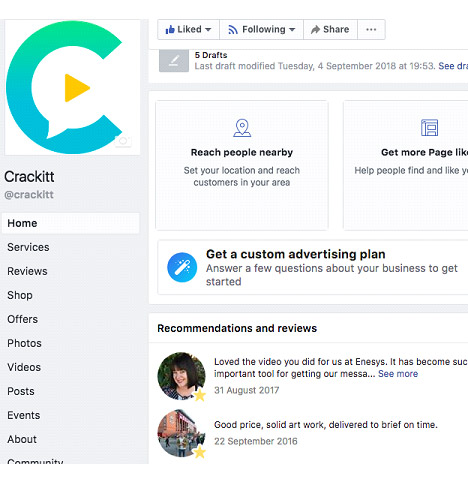Table of Contents
- Introduction
- Online reputation and its significance
- Check your current online profile
- Acknowledge and respond to negative reviews
- Eliminate trolls and illegitimate attackers
- Closing thoughts
Introduction
The most successful brands have one thing in common – loyal customers. And if you take a closer look at their stories, you will realise that they create this loyalty by building a good reputation. And this reputation doesn’t just exist offline, it also impacts businesses in the online space – now more than ever. But do brands understand this?
Online reputation and its significance
Most brands often fail to realise that their online reputation impacts their business. Because that is how people see them in the search results or in their social feeds.
Consider this. When a user puts “–business name–” as a Google query and the top few results portray a negative image of that company, that impacts the business directly. Remember that the top two results get two-thirds of all clicks.
Similarly, when your users look for you on social channels, the reviews on your page have a direct impact on their purchase decisions.

So what you build online, is a direct extension of your brand. And if your online reputation suffers, your business suffers.
To ensure that your online reputation aligns with your business goals, here is how you should manage it:
Check your current online profile
Before you set out to enhance your online image, it is crucial to know where you stand. Start by doing a quick assessment. Check your social profiles and see if there are any complaints to be addressed?
Google your business and see how well you are doing in the first few search results – look for Google reviews, see the top ranking links. This will help you become aware of what’s negatively affecting your online image. Once you know this, you can devise better strategies to eliminate the negative and replace it with positive.
A study revealed that people who look at user-generated content convert 161% more than those who don’t. This clearly reveals how your audience’s perception of you affects the mindset of others who come across their reviews. So do make sure that you track your mentions as well.
Acknowledge and respond to negative reviews
With everything going online, businesses have become more accessible to customers. While this has given a great advantage to marketers, it has come with a price. With transparency coming in, it has become a challenge for businesses to embrace negative feedback – since it’s out there for everyone to see.
Dealing with negative reviews is a very crucial part of online reputation management because it can make all the difference. Remember to not run away from it since it destroys your credibility. Respond calmly and acknowledge any mistakes committed at your end. Lastly, don’t forget to ensure that you will take the necessary steps to rectify it. Consider, for example, this response:

Eliminate trolls and illegitimate attackers
When dealing with criticism, it is crucial to distinguish genuine feedback from illegitimate one. Because when it comes to dealing with online trolls, your reputation management should take a different approach. It is crucial to block these attackers from spoiling your online image. One of the ways of dealing with this problem is by deleting their comments. In worse cases, you can report their accounts to the concerned social platforms or even sue them.
Closing thoughts
Your online reputation is essential to your online and even offline success – the better your reputation, the better is your customer’s opinion of you. Remember that when you are dealing with your audience in public, a small mistake can spread like wildfire. So listen closely to what people are saying about you. And use that information to create better customer experiences.
FAQs
Why Is Reputation Management Important?
The online reputation of a brand affects its business. Since its reputation dictates how the public sees it in the search results or in its social feeds, having a bad reputation can lead to a lower number of clicks and fewer conversions.
Also, if the brand has negative reviews all over social media, people may develop a negative public opinion about the brand. With proper reputation management practices, you can recover from such disasters.
How Can I Improve My Brand Reputation?
Here are some of the most effective ways to improve your brand reputation:
- Conduct a brand audit to understand what people see when they search for your brand
- Monitor the brand mentions on the internet
- Respond to negative reviews and try to resolve the issue
- Invest in search engine optimization of the website
- Use public relations to your advantage
- Encourage your customers to share positive reviews
- Promote positive content on the internet






